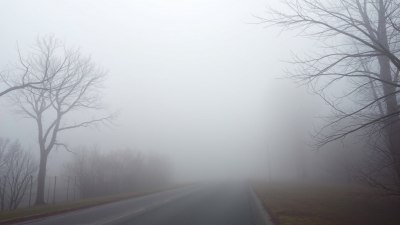Can You Really Catch a Cold from Cold Weather
We’ve all heard it: “Bundle up or you’ll catch a cold!” But is it true, or just a myth? Here’s what science says.

Your mom probably warned you about going outside without a coat, and you’ve likely heard people blame chilly weather for their sniffles. But can you really catch a cold from cold weather? The answer is a little more complicated than a simple yes or no. While the cold itself doesn’t cause colds, it does create conditions that make you more likely to get sick. Here’s how it all works—and why your mom wasn’t entirely wrong.
1. The Real Culprit: Viruses, Not Temperature
Colds are caused by viruses—mainly rhinoviruses and sometimes coronaviruses (not the pandemic kind). These viruses spread through droplets when someone coughs, sneezes, or touches a surface that you then touch. The temperature itself doesn’t create viruses, but cold weather plays a role in how they spread.
2. Cold Weather Weakens Your Immune System
When you’re cold, your body tries to conserve heat by reducing blood flow to your nose and extremities. This leads to a weaker immune response in your nasal passages, which are the first line of defense against cold viruses. With fewer immune cells protecting your nose, viruses have an easier time entering your body and making you sick.
3. Dry Air Helps Viruses Thrive
Cold weather often means lower humidity. When the air is dry, the mucus in your nose dries out, making it easier for viruses to attach to your nasal passages. Plus, research shows that cold, dry air helps viruses survive longer, increasing your chances of coming into contact with them.
4. Close Contact Spreads Germs Faster
In winter, people spend more time indoors with closed windows and poor ventilation. Whether it’s at work, school, or home, this close contact makes it easier for viruses to spread from person to person. It’s not the cold itself—it’s the crowded, enclosed spaces that make colds more common in winter.
5. Cold Air Can Make You Feel Sick (Even If You’re Not)
Breathing in cold, dry air can irritate your airways and trigger symptoms like a runny nose, sore throat, or cough. This isn’t a virus—it’s your body reacting to the cold air. This irritation can weaken your respiratory defenses, making it easier for viruses to infect you if you’re exposed to them.
6. The Myth Comes from Correlation, Not Causation
The reason people think cold weather causes colds is because more people get sick in winter. But it’s not the temperature itself—it’s the combination of factors like weakened immune systems, dry air, indoor crowding, and longer virus survival times. In warmer climates, people still catch colds, but they’re more common in the rainy season when people gather indoors.
7. So, Should You Still Bundle Up?
While cold weather doesn’t directly cause colds, staying warm helps your body maintain its immune defenses. Wearing a scarf over your nose and mouth can also help keep your airways moist and reduce irritation from dry air. So yes, bundling up is still a good idea—but not for the reasons you might think.
The Verdict: Cold Weather Doesn’t Cause Colds—But It Helps Them Spread
You don’t catch a cold just because it’s cold outside. Viruses are the real culprit, and cold weather just makes it easier for them to spread. By weakening your immune system, drying out your airways, and keeping people indoors, cold weather sets the stage for viruses to thrive. So next time someone tells you to bundle up to avoid getting sick, you’ll know the truth. It’s not about avoiding the cold—it’s about avoiding the germs.











